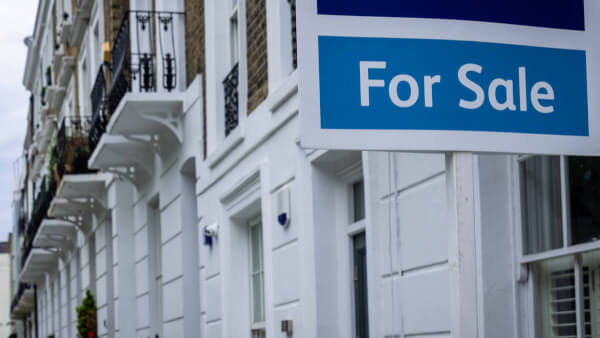Buying property in Australia as non-resident. What you need to know
Whether you’re considering moving to Australia and hope to buy a home or are interested in investing in the Australian property market while remaining...

Some 1.25 million Australians visit the US annually, heading for places like Honolulu, New York, Los Angeles and Las Vegas. If you’re back from a dream break stateside and want a way to make a more permanent move to the US, this guide is for you.
We’ll take a look at some key considerations when moving, including types of properties available, what you’ll pay, and ways to save money on your down payment with Wise.
Naturally, the US property market varies widely from place to place. You’ll certainly want to check out the property prices and market trends in the state and city you’re considering moving to. Housing is a huge proportion of the household spend of most Americans, so you’ll want to know you’re getting the best value for your dollars.
One a broader scale, the US is a country of homeowners, with nearly 65% of households owning rather than renting a home¹. Owning is cheaper than renting in much of the US, and there are some 77 million owner occupied housing units across the country. That should mean that - no matter where you’re headed in the US - you can find a place to suit.
Yes. There are no legal reasons why you can’t rent or own property in the US as a foreign citizen, although there are a few local restrictions in place which make it harder to buy land in some states.
You’ll need either a Social Security Number (SSN) or an Individual Taxpayer Identification Number (ITIN) to get started, but can apply for this online upon arrival.
The cost of buying a property in different areas of the US can vary widely. As you would expect, units in the city centre will cost more typically than homes in the suburbs or in more rural areas. Depending on what matters to you and your budget, you should find a broad choice of options available.
A good way to check out the relative costs of buying in different cities is to use Numbeo - a source of aggregated data submitted by users, which covers the costs of living all over the world. The data is live and changing all the time, so you’ll need to check the most recent costs for the areas you’re considering as part of your research. Here’s an example of the price per square meter of apartments in some major cities in the US:
| Price per square metre | New York | Honolulu | Los Angeles |
|---|---|---|---|
| City centre apartment | USD15,135 | USD7,651 | USD7,773 |
| Apartment not in the city centre | USD8,080 | USD5,449 | USD5,205 |
*Data correct at time of research 23 July 2020
Different approaches to finding property in the US may work better depending on where you are. Real estate agents and property websites are reliable more or less throughout the country, but you might also have some luck by talking to local friends and getting personal recommendations, or even using classified ads online or in the local print news.
Real estate agents usually have to be licensed. This has the advantage that when you work with an agent you know that you’re dealing with a professional who has been trained in the relevant laws and regulations relating to buying and selling property. However, it also comes at a cost. You may find agent fees are in the region of 6% of the value of the property - usually paid by the seller.
Make sure you find an agent you trust, and who understands your specific needs, for the best results.
Ensure that any professional you’re dealing with during your home buying journey is properly trained and licensed according to the requirements of your state. This will eliminate a lot of potential pitfalls when buying a home. However, there are also scams and con artists out there who may try to prey on vulnerable buyers who are dealing with the stresses and strains of a property purchase.
One known scam involves a fraudster intervening in the process of the purchase by cloning an email which is very similar to that of your agent, solicitor or other legitimate party. They can then give incorrect payment details or ask for money that doesn’t need to be paid, while posing as a professional involved in your home purchase. Check details of any email you receive carefully and call your agents immediately if anything seems suspicious.
Property websites are great places to scan the local market in the area of your choosing, and get used to what prices are available. Here are some reputable property websites to start off your research:
If you’re just starting out you may not be sure what will suit you and your family when you move to the US. No need to rush in - you can take some time to research and even get a short term rental in the area of your choice while you decide what to buy.
The way properties are described can vary from one country to another, so even though you’ll be reading ads in English it pays to know what the different property types available are. You’ll see the following types listed:
Before you buy a property, you’ll naturally want to check it is in good condition. One way to do that is to have a professional property inspector come to check out the house before you proceed with the purchase. This may well be a condition of your mortgage lender - many banks will not release mortgage funds without a property inspection and boundary survey - but makes good sense even if you’re not using a loan to purchase.
The exact details of the property inspection required will depend on the property you’re buying, and any known local risks. You can expect to have checks on the roof, foundation and drainage, plumbing and electrical systems, as well as specific checks required according to the location. Homes in areas prone to flooding or sinkholes for example, may need additional checks.
Of course your home inspection is only as good as the professional who carries it out - look for recommendations from friends in your neighbourhood, or check out the American Society of Home Inspectors for advice².
Another sensible step before buying a home is to get a boundary survey. Again, this may actually be required by your lender, to ensure the property has been built according to code and the boundaries are correctly recorded. Your lender may also require a home appraisal to check you’re paying a fair market price for the property.
The basic steps you’ll need to take are as follows:
The requirements may vary from state to state so you’ll need to check the details for your chosen location. You’ll almost certainly need a licensed real estate agent to find the property, and an attorney to complete the legal steps to confirm ownership - but you may also need to involve further professional help, depending on the situation.
If you’re a Green Card holder or have a valid working visa and SSN or ITIN, you should be eligible for a range of mortgage products from different lenders. However, it’s worth noting that individual banks set their own eligibility rules. You may not be eligible for all products, so you’ll need to shop around to find the right bank and mortgage product for you.
Most home buyers will need some financial support to be able to get the property they want. Here’s what you need to know about getting started with bank loans and mortgages.
As an expat in the US, you’ll be able to access mortgages at a range of banks. However, you may find you face a few hurdles that US citizens don’t when it comes to getting the right mortgage product.
One common issue is in proving your credit history. If you’re relatively new to the US this may be hard. If you have previously used global banks in Australia for mortgages or your day to day banking, it’s worth checking if they have a presence in the US too. You might find you’re able to get a mortgage on the strength of your previous relationship with the bank, rather than needing to prove your creditworthiness once again.
The key to finding the right bank and mortgage product is to shop around and speak in person to mortgage providers where possible to explain your situation.
As part of your home purchase you’ll need to pay a down payment - usually at the point of closing the sale. The amount you have to pay will depend on the conditions of your mortgage - usually between 5% and 20% of the value of the house. If you’re new to the US, or if you hold your savings in Australia, you may need to pay this from an AUD account to secure your new home.
If you’re sending a payment to the US from overseas, it’s important to look at the fees and costs involved. Many international payment providers state they have low fees, but actually add a substantial markup to the exchange rate used. This can really add up when you’re making a large payment.
When you are planning how to pay your down payment, check out the fees and exchange rates available from Wise. There is no markup added to the exchange rate used, and the charges are transparent. This can mean that sending money overseas with Wise is up to 8x cheaper than using your bank.
It’s not just the down payment you need to consider - here are some other key costs to think about³:
Don’t forget that you may also pay an exchange rate markup when paying mortgage, costs and your home deposit. To avoid this, use a currency service which offers transfers with the mid-market exchange rate, such as Wise. If you are looking for a way to send money to the USA, Wise could be an option.
Buying a home is an important part of settling into the US. Once you have your property sorted you can start to really feel at home. Use this handy guide to get started on your property search, and don’t forget to check out the low cost currency services from Wise to help you cover your costs, and save on international payments.
Sources:
All sources accurate as of 23 July 2020
*Please see terms of use and product availability for your region or visit Wise fees and pricing for the most up to date pricing and fee information.
This publication is provided for general information purposes and does not constitute legal, tax or other professional advice from Wise Payments Limited or its subsidiaries and its affiliates, and it is not intended as a substitute for obtaining advice from a financial advisor or any other professional.
We make no representations, warranties or guarantees, whether expressed or implied, that the content in the publication is accurate, complete or up to date.

Whether you’re considering moving to Australia and hope to buy a home or are interested in investing in the Australian property market while remaining...

Selling a property in Australia can be a complex process whether it's the first property or the tenth. Now imagine this process in a completely different...

Australia is a popular destination for many foreigners from around the world to move too. In particular, it is a popular place for citizens of France to move...

If you’re a Japanese expat looking to move to the Sydney area, you may be interested in looking for a Japanese school for your children. You may be keen for...

Many Australians look to emigrate at some point in their lives, and one of the most popular locations chosen is Hong Kong. With over 100,000 Australians...

Many Australians move to Singapore every year - in fact, as many as 20,000 Australian expats live in Singapore.¹ If you’re thinking of relocating to Singapore...